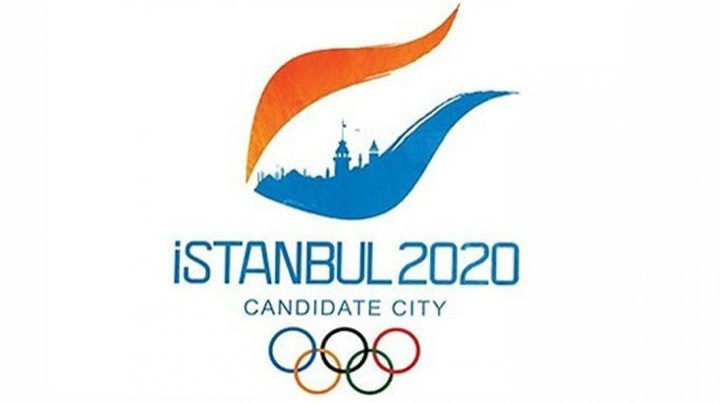Olympic Host Cities For 2020: How Tokyo, Istanbul And Madrid Stack Up
The International Olympic Committee, or IOC, will meet in Buenos Aires this weekend to decide on the host of the 2020 Summer Olympic Games. The candidates are Tokyo, Istanbul and Madrid. Here’s a look at how they stack up.
Tokyo

The Plan: Tokyo promises to take the Olympics to a new level of sophistication by capitalizing on global trends in everything from fashion to digital technology. Organizers say they’ll imbue the Games with state-of-the-art innovations at venues embedded into the heart of the city of 35 million people. Expect everything from talking robots to a sleek Zaha Hadid-designed stadium.
The Costs: Tokyo’s estimated budget of $8.5 billion puts it squarely in the middle of the pack, and the city has promised that, should it win, the money will be accessible from the moment when the Olympic organizing committee begins setting up operations.
Why Tokyo Might Win: Japan is clearly the most economically stable of all the candidate cities, and it is considered a sure bet to deliver on its promises in a timely and orderly fashion. Given the current construction delays in building venues in Rio de Janeiro and the controversy swirling around the 2014 Winter Games in Sochi, Russia, over human rights concerns, the IOC may be looking for “a pair of safe hands,” as Tokyo has called itself. Tokyo also scored the highest on the IOC’s technical report card, and it promises to bring the Olympics into the 21st century with its slogan, “discover tomorrow.”
Why Tokyo Might Lose: With troubles at the crippled Fukushima nuclear plant back in the news this week, radiation concerns are once again Japan’s biggest hurdle to Olympic glory. In fact, Japan is so worried that this will mar its bid, the prime minister promised on Monday to fly to Buenos Aires himself to explain how the radiation levels would not be an issue for Tokyo. Tokyo’s front-runner status could also be a double-edged sword, as a win may make the IOC appear as if it is rewarding stability over a riskier choice that could potentially generate societal change. Moreover, Tokyo has failed to explain the reasons why it should host the Games as well as it has explained the reasons how it would do so. It also lacks the enthusiastic public support of its gung-ho competitors.
Istanbul

The Plan: Istanbul has what is, perhaps, the boldest plan of the pack, with venues located in four broad zones that span both the European and Asian sides of town and branch out along the Sea of Marmara and into the nearby Belgrade Forest. The city says the construction of numerous world-class facilities would meet a pressing social need and realize the government’s vision of providing free access to sports facilities for all.
The Costs: Istanbul is taking a go-big-or-go-home approach to the Olympic Games, promising a combined budget of $19 billion for Olympic costs and the city’s own infrastructure projects. However, while this budget dwarfs those of Tokyo or Madrid, much of it is not technically tied to the Games.
Why Istanbul Might Win: Some economists like Wolfgang Maennig, a professor of economics at Hamburg University and a former Olympian, have stated publicly that Turkey would be the best bet as it has the most to gain from hosting the Olympics and the fastest-growing economy of the candidate cities. Istanbul 2020’s slogan has long been “Bridge Together,” noting its location at the crossroads of Europe and Asia, while the phrase “History in the Making” has become its rallying cry in the final days. If selected, Istanbul would become the first city in the Arab world to host the Olympics, “giving hope, trust and peace to a region,” as bid leader Hasan Arat has said. The 2016 Olympics went to Rio de Janeiro, marking the first Games for South America. If the IOC were out to broaden the event’s global appeal, Istanbul would certainly fit the bill.
Why Istanbul Might Lose: While Turkey’s location was a key part of its marketing effort, it could also become its Achilles heel. Some fear its Syrian and Iraqi borders -- far away from Istanbul though they may be -- do not bode well for the security situation at the Games. Moreover, the heavy-handed way in which the government dealt with mass anti-government protests earlier this year -- five people were killed and more than 8,000 injured -- puts into question whether the city was stable enough to host an event of this magnitude. Even before the unrest in June, Istanbul was the dark horse candidate, coming in far behind Tokyo and Madrid in a preliminary scoring. A doping scandal involving Turkish athletes at the World Athletics Championships served only to mar the Istanbul 2020 campaign further.
Madrid

The Plan: Madrid’s low-frills approach is its biggest selling point against its two rivals, as the Spanish capital plans to rely heavily on existing structures and the clever use of temporary ones. Some 28 of the 35 venues already exist, the city said, while new structures like the Olympic Village would be built with private investment and transformed into social housing after the Games.
The Costs: Madrid is banking on a low-cost $5 billion “austerity Olympics” to win over the IOC. Madrid 2020 has proposed spending about $3.1 billion to put on the Games, and another $1.9 billion to construct new venues. By comparison, London spent roughly $13 billion on the 2012 Summer Olympics, while Sochi will spend a whopping $50 billion for the 2014 Winter Olympics.
Why Madrid Might Win: Its penny-pinching bid for 2020 has been called Spain’s ticket out of the recession and, by most accounts, the nation is galvanized behind the proposal. An International Olympic Committee-commissioned poll found 76 percent of city residents support Madrid 2020, while 81 percent support the bid nationwide. Organizers say hosting the Games could provide a $5.1 billion boost to the Spanish economy and generate 83,000 full-time jobs in the country, where more than 25 percent of the people are unemployed. From a technical standpoint, Madrid’s presentation this July in Lausanne changed many IOC members’ perceptions and gave the city much-needed momentum for the final stretch.
Why Madrid Might Lose: Despite the low cost, Madrid is riddled with debts of about $9.8 billion, while Spain’s overall public debt stands at $1.2 trillion, or about 88 percent of the country’s entire annual economic output. Some analysts fear that economic troubles will dog the nation in the years ahead and, perhaps, lead to resentment of money spent on the Games. Moreover, Madrid has a track record of three failed attempts spanning from 1972 to 2016.
© Copyright IBTimes 2025. All rights reserved.






















